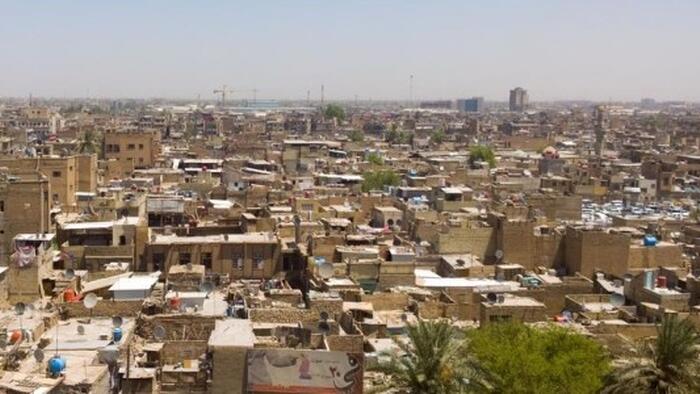Iraq finds itself in a precarious geopolitical position as it grapples with the tensions between Israel and Iran, both of which are edging closer to open conflict. The United States, generally supportive of Israeli actions, may inadvertently complicate Iraq’s situation if attacks on Iran are coordinated through Iraqi territory. This presents a significant challenge for Iraq’s leadership, who must navigate between maintaining sovereignty and appeasing external powers. Washington’s earlier military actions and sanctions, particularly from the 1991 invasion of Kuwait to the 2003 U.S.-led invasion, have left deep scars on Iraq’s political and economic landscape. The protracted struggles against the Islamic State and past sanctions have contributed to exorbitant inflation, unemployment, and crumbling infrastructure, making it increasingly difficult for Iraq to carve out a secure path toward peace and prosperity.
The presence of approximately 2,500 U.S. troops in Iraq has added another layer of complexity to the political environment. Public sentiment in Iraq largely favors their departure, particularly following the controversial killings of key militia leaders, which have heightened anti-American sentiments and bolstered local support for Iran-influenced militias. Despite Iraq’s parliament passing a resolution for withdrawal, there are ambiguities regarding the number of troops that will remain and their objectives, particularly in context to the ongoing threat of the Islamic State. The U.S. has also exerted influence through economic measures, including restricting financial transactions and requiring sanctions waivers for Iraqi energy purchases. Such measures reinforce Iraq’s dependence and complicate its quest for autonomy in foreign policy, where it grapples with multiple interests from regional powers.
The challenge for Iraq is further exacerbated by the presence of a significant number of refugees and internally displaced individuals as a result of previous conflicts. Iraq has become a refuge for about 300,000 asylum seekers and houses over one million internally displaced individuals due to the Islamic State insurgency. These humanitarian issues add a layer of urgency to Iraq’s struggle for stability and effective governance. The complex interplay of local and foreign forces—particularly the Iranian-backed Popular Mobilization Forces—has made it difficult for Iraqi leaders to consolidate power without facing backlash from various factions, including pro-Iran groups and U.S. interests.
Iraqi Prime Minister Mohammed Shia’ Al Sudani’s recent diplomatic efforts with the U.S. underscore the delicate balance Iraq seeks between its relationships with Washington, Moscow, and Beijing. While Al Sudani aims to revitalize economic ties with the United States, the recent withdrawal of ExxonMobil—one of the largest U.S. oil companies from Iraq—may send a discouraging signal to potential American investors. This void has allowed corporations from Russia and China to step in and fill the gaps, which increases Iraq’s reliance on foreign powers and complicated its economic strategy. The interplay of investments from these states can potentially undercut Iraqi autonomy, making the prospect of U.S. support more vital for a diversified and stable economy in Iraq.
Key projects, such as the ambitious $17 billion Development Road initiative, signify Iraq’s intent to transform its geopolitical and economic landscape. Connecting the Persian Gulf to Europe, this project aims to create economic zones that foster trade and lessen reliance on oil revenues. However, logistical and financial hurdles, along with the ever-persistent threats of regional insecurity and corruption, pose considerable risks to successful execution. As Iraq maneuvers through these challenges, achieving its goal of economic independence from geopolitically-entangled oil revenues will determine the sustainability of its reforms and stability.
In re-evaluating its foreign policy and strategic alliances, Iraq must navigate the complexities of its historical and current ties to both Iran and the West. The U.S.’s historical entanglements in Iraq highlight the need for a shift from security-focused relationships to economic partnerships. To fully realize this potential, Iraq must address its economic structural weaknesses, while simultaneously distancing itself from the divisive influences of Jerusalem and Tehran. The prospects for a prosperous Iraq will hinge on balancing these interests, fostering an inclusive economy, and ensuring that the voices of its youth, who represent a significant portion of the population, are prioritized in future planning and development strategies.

